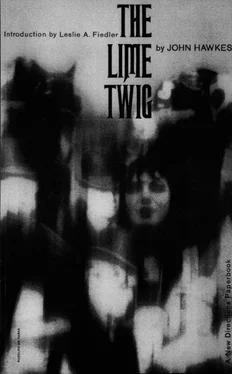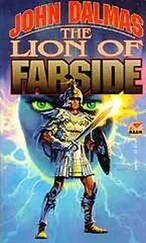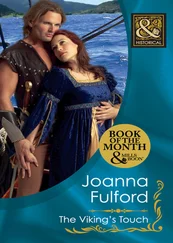“Buy a ticket,” mumbled the man from his chair. In weariness and the heat he sought Banks’ eyes but was too overcome to move. Banks turned a little and his shadow, like the arm of a sundial, pointed at someone else. He had found his air hole, a bit of room for his feet, and no one was at his elbow, nobody crowded. For once there was not a familiar face in sight, Margaret would wait. No longer did he care about the roses in the green behind him, but kept his eyes on the sandwich.
“He don’t need a ticket. Can’t you see?” One of the women, young, alone, with small carbon-black pock holes covering her face, sitting with her skirts out of place on the dirty incline of the clay spread before the stands, tore slowly into little pieces her own ticket, a dare that had failed, and glanced at the man in the chair. “He don’t need your kind of luck, our kind of luck. Can’t you see? God, what a thirst I’ve got!”
And ignoring her: “Buy a ticket,” the man said again, and the wheels squeaked for a moment.
“God,” the woman continued, and looked once at the sky, “they ought to shoot that Islam. Say,” talking not to the prostrate man but to Banks, “you didn’t bet on Islam, did you, mister? You’d know better, you would. He’s broke my heart, that Islam. Say,” he could feel a quickening of thought, a change in her eyes, “you wouldn’t have a quid on you, mister?”
And quickly: “Watch out for her,” the man said with an angry spinning of the wheels.
But Banks didn’t care. He heard the voices of the man and girl — they were ringed round him and the bodies curtained out all except a far-off anonymous noise from the crowd — and he recognized the spent effort of the seller’s voice and the appeal of the girl’s. A little powder case was lying on its side next to her hip. But he had had enough of them and he was eating cheese.
“Here, I’ll give you a quid,” said a fat woman who was watching four or five chocolates melt in the palm of her hand.
The clay under his feet had grown hard with the spittle and rain, the sun, the endless weight of their bodies. It gave off an odor — of shoe leather, shredded tobacco, sweat. The sun was shining off their flesh. He moved his sundial’s shadow again and peered at his teeth marks in the cheese; it made a dry bulb in his mouth and only the girl’s remark about thirst had caught his attention. What if he showed her a pink lemonade and gin right now? She’d forget her Islam soon enough.
“Have one of my chocolates,” said the woman.
He would watch out for all of them, he thought. Suppose he swallowed and looked at them, then said one word simply and clearly. What if he said “Larry”? The fellow in the chair would jump, most likely. But he buried the name, forgot it, thrust his face into the cheese which had no smell. He had never liked to stand while eating. Now he was grateful for the pause, the chance to stand apart though they were watching. Perhaps only the boy asleep was better off — no clock, no time, no witnesses for him. The face was bruised, bore the impression of knuckles beneath one eye. He would start, sit up, begin to cry if he heard the name of Larry, right enough.
Banks crumpled the sandwich paper and thrust it into his pocket.
“He’s not so lucky,” said the woman with chocolates, “he’s only a kid.” And she was looking at him squarely and he at her, and she had a man’s thick lips, an arm she might throw about anyone’s shoulder. “Tell us now,” she said. “Are you the lucky boy? Have you been winning?”
He tried to look away. Then calmly, feeling the sun’s pool hot in the top of his hat: “I’ve been picking them all correctly. But not for cash. …”
“You see,” she shouted, “he hasn’t got a quid!” And while laughing she licked the sweets, pulled a scrap of handkerchief from her skirt and began wiping the sticky palm. Her laughter awoke the boy and he groaned.
The girl laughed also, but less heartily, as if she might still hope to get what he did have.
“Shut up,” said the man in the chair, “he’s got more than that.”
And over the heads of all those standing behind them, he saw the profile of Margaret’s face. When he jumped, took the first long stride, he kicked something under his foot and in a moment knew it to be the young woman’s powder case, without looking down, heard the tinkle and scrape of the contents scattering.
“Here, don’t be rude…,” he heard the older woman say, and he was pushing, pushing away into the midst of them. And still there was the face and he gasped, slipped between two men in black, tried not to lose her, raised a hand. Here was surprise and familiarity, not out of fear, but fondness, and between them both perhaps three hundred others not moving, not caring what they lost in the sun.
“My God, what have they done to Margaret!” Because, for the moment only he saw the whole of her and she was wearing clothes he had never seen before — an enormous flower hat and a taffy-colored gown with black-beaded tassels sewn about the waist and sewn also just above the bottom that was dragging. A dress from another age, too large, too old, Margaret clothed in an old tan garden gown and lost. “She’s not yet thirty,” he thought, shoving, using his elbow, “where’s their decency?” Then she was gone and he shouted.
“Watch who you’re colliding with, young cock,” said a voice in his ear.
He reached the spot where she had stood, but only a man, somebody’s butler, with a small child on his shoulders, moved in her place now, and the man refused to talk. The child looked down at Banks.
So he turned, stumbled, and near the east corner of the stand saw the last of the taffy bade rushing like the ghost of a doe, and they were hustling her — another woman and a man. “Wait!” he was only thinking it, “wait!” Here was the first taste from the cup of panic, seeing the girl, his wife, pulled suddenly away from him by an arm. When he reached the spot he found that Margaret had been caught at the top of the stairs leading down to the five swinging doors of the Men’s, and he stopped, drew back, put his hand on the rail. A cigarette flung in anger, haste, was burning down there near one of the vaulted doors and he thought he could hear still the old public squeak of the hinge. He could not descend those stairs, and once more he was tasting lime. In the cool shadow he leaned, clutched the dusty iron, closed his eyes.
“Mr. Banks.” It was Cowles, accompanied by Needles dressed in his silks. “Why, Mr. Banks, you’d better take care in the sun. Ain’t that right, Jimmy?”
“I saw her…,” he managed to say.
“Who’s that, Mr. Banks?”
“I saw my wife. …”
“Well, too bad for that, Mr. Banks, as the fellow says. Ain’t that right, Jimmy?”
“They took her into the Men’s.”
“Unlikely, I should say. You’d better watch the sun, Mr. Banks. Come now,” and he could hear the jockey shuffling his little boots, “come, you’d better join us at the Baths. They’re bracing, Mr. Banks, very bracing. …”
“Fool,” shaking the white gown in his face, “you fool!”
“But she pilfered the trunk, I tell you.”
“I never let it happen … but you did. You fool!”
“And what’s so smart about having a trunk full of clothes in the hall when you’re trying to keep her naked?”
“Don’t say smart to me, smart as a naked girl, you are! And I can’t even take a slip to watch the Bumpy Girl without you letting her at a trunk full of clothes that would keep us all in style.”
“You wasn’t supposed to be taking a slip. You was supposed to stay.”
“Don’t throw it back at me, don’t give us that! Just wait ’til Larry hears how it was you who was lax, you wait. …”
Читать дальше












